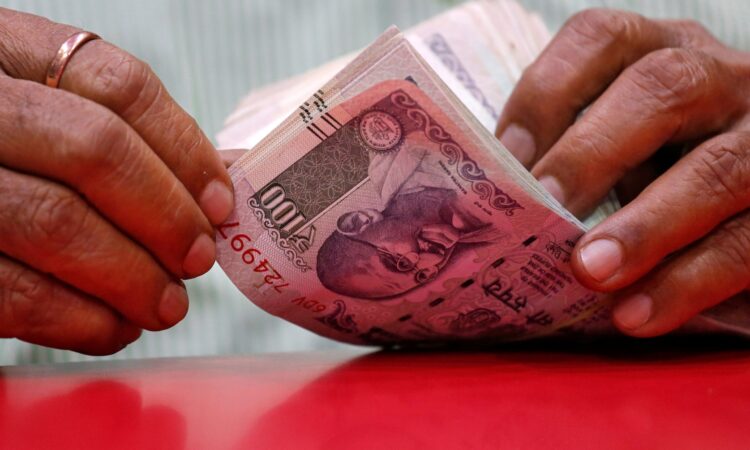
MUMBAI, Feb 29 (Reuters) – The Indian rupee ended little changed on Thursday, as dollar demand from foreign and state-run banks eroded positive cues from an uptick in most Asian currencies, traders said.
The rupee closed at 82.9125 against the U.S. dollar, barely changed from its previous close at 82.9225. The currency logged a monthly gain of 0.2%, its third consecutive month-on-month rise.
The dollar index was last quoted at 103.78, on course for a second consecutive monthly gain, supported by strength in U.S. economic data which also prompted a pullback in bets of early interest rate cuts by the Federal Reserve.
Asian currencies were a mixed bag in the month, with the Indonesian rupiah rising 0.4%, while the Thai baht fell 0.8%.

Buoyant dollar inflows supported the rupee’s gains in February even as the dollar and U.S. bond yields rose. The 10-year U.S. Treasury yield was last quoted at 4.30%, up 34 basis points this month so far.
The rupee is unlikely to gain beyond 82.80 in the near term but the likelihood of depreciation beyond 83.10 has reduced, said Sajal Gupta, head of forex and commodities at Nuvama Professional Clients Group’s institutional desk.
Meanwhile, dollar-rupee forward premiums were little changed on day, with the 1-year implied yield at 1.65%, hovering close to its lowest level in two-and-a-half months.
The 1-year implied yield fell 21 bps in February, pressured by the pared expectations of Fed rate cuts, improved rupee liquidity and mild concerns about dollar scarcity ahead of the March 11 maturity of Reserve Bank of India’s $5 billion USD/INR sell-buy swap, traders said.
Forward premiums are likely to stay under pressure in the near-term, but 1.60% should hold as a support for the 1-year implied yield, a foreign exchange trader at a private bank said.
Investors now await India’s GDP data for the October-December quarter and the U.S. personal consumption expenditures (PCE) price index due later in the day.
Sign up here.
Reporting by Jaspreet Kalra; Editing by Varun H K
Our Standards: The Thomson Reuters Trust Principles.

